
On this day in history events for week 6th June to 12th June.
[Read More...]
I’ve mentioned Postscript Books before in videos, but I thought I’d write a post just highlighting them as a great resource for bargain history books. Thank you to Tudor Life contributor Olga Hughes for recommending them to me, what a find!
Postscript Books are a mailorder bookseller based in Devon, in the UK, and who offer books at up to 75% off publishers’ prices. They can offer these discounts because the books are publishers’ overstocks or remainders. By the way, I’m not affiliated to them in any way, I’m just a happy customer!
[Read More...]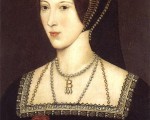
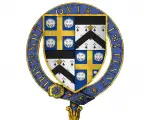
On 2 May 1536, Anne Boleyn was ordered to present herself to the Privy Council. Standing before the Duke of Norfolk, Sir William Fitzwilliam and Sir William Paulet, Anne Boleyn was arrested for committing adultery with three men: Mark Smeaton, Henry Norris and an unnamed man.
After lunch, Anne was escorted from Greenwich to the Tower of London. Popular myth tells of how Anne entered the Tower of London from the Thames through ‘Traitors Gate’. However, researchers and historians suggest that she would have arrived through the Court Gate near the Byward Tower – which was the common entrance for people of nobility and royalty. Here she was met by Sir Edmund Walsingham, the Lieutenant of the Tower, and escorted inside.
[Read More...]
Yay! I’m so excited! On 24th September eighteen of MadeGlobal Publishing’s authors will be in London for “an evening with the authors”. This is your chance to mingle with 18 Tudor history authors (many of whom are Tudor Society contributors), have your photo taken with them by a professional photographer, get their autographs, discuss your book idea with MadeGlobal Publishing, and fire questions at the authors in a Q&A session.
[Read More...]
The Groom of the Stool, or, as the official title was known, The Groom of the King’s Close Stool, has gone down in history as one of the grossest jobs available. As the name suggests the Groom of the Stool was responsible for attending to the King’s toileting needs. The Groom would care for the King’s toilet, known in the Tudor period as a ‘Stool’. He would be responsible for supplying water, towels and a washbowl for the King when he had finished his business. There is some debate as to whether or not the Groom of the Stool was responsible for wiping the King’s behind, with some believing he did and others thinking his duties did not extend to that extreme.
While being responsible for the King’s bodily functions may seem quite disgusting for us in today’s times when going to the bathroom is considered to be a private matter, it was very, very different in the Tudor age.

Regular contributor, Tudor Society member and historian Derek Wilson has just informed me that an article he has written on Richard III is the lead feature article in the very first issue of “History of Royals” magazine which comes out on 14 April.
[Read More...]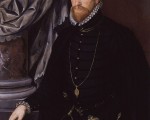

I’ve just seen the news on Facebook that historian and author David Baldwin passed away on Monday (4th April). It is such sad news.
[Read More...]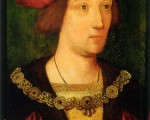
On 2nd April 1502, Arthur Tudor, eldest son of King Henry VII, died at Ludlow Castle. He was just fifteen years old and had been married for less than five months.
Arthur Tudor had married Katherine of Aragon, daughter of King Ferdinand II of Aragon and Queen Isabella I of Castile. King Henry VII had worked hard for several years to secure a marriage between his son and Princess Katherine to see a strong alliance created between England and Spain. The marriage would also help to put England on the international stage and secure the succession of the Tudors.
[Read More...]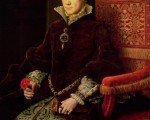
On 30th March 1558, Queen Mary I made her last will and testament, believing that she would soon give birth and knowing that childbirth was a risky process.
[Read More...]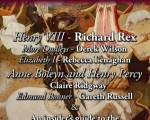
Packed with a wide range of articles about Tudor personalities like the Dudleys, Elizabeth of York, Mary I, Isabella of Spain and Henry Howard. There is part one of an insider’s guide to the Tower of London, a detailed article about Greenwich Palace and Wroxhall Abbey, an article about some bizarre Tudor foods and lots more! It’s our best magazine yet!
[Read More...]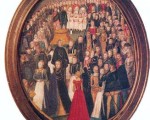
Maundy Thursday commemorates the Last Supper, that final meal that Jesus Christ had with his disciples before his arrest.
In Tudor times, on Maundy Thursday, the church was prepared for Easter with water and wine being used to wash the altars and it was traditional for people to go to confession. The three holy oils – the chrism oil, the oil of catechumens and the oil of the sick – were also blessed on this day.
At the Last Supper, which was the Passover meal, Luke’s Gospel says that Christ took bread, gave thanks to God for it, broke it and then shared it with his disciples, saying “This is my body given for you; do this in remembrance of me.” He then took the cup of wine, saying, “This cup is the new covenant in my blood, which is poured out for you.” Christians all over the world remember this gesture by celebrating the Eucharist, also known as “communion”. According to John’s Gospel, it was at this meal that Jesus washed his disciples’ feet, and both Luke and John record Jesus saying that there was one among them who would betray him.
[Read More...]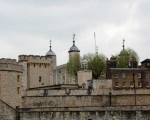
On Palm Sunday 1554 (which was 18 March that year), the twenty year old Elizabeth was taken to the Tower of London, the place where her mother had been imprisoned and where her mother and one of her stepmothers had been executed.
We can only imagine the sheer terror she felt when Mary I’s council turned up at her doorstep on the 16th March to formally charge her with being involved in Wyatt’s Rebellion, the revolt which had taken place in January and February 1554. Elizabeth was told that Mary wanted her sister taken to the Tower for questioning and that she would be escorted there the next day.
[Read More...]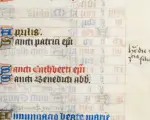
On 18th March 1496, Queen Elizabeth of York, wife of King Henry VII, gave birth to a healthy baby girl at Richmond Palace. The little girl was named Mary and her birth was recorded by Elizabeth in her Psalter. Lady Margaret Beaufort, the King’s mother, also recorded Mary’s birth in her Book of Hours. On 18th March, Margaret recorded: “Hodie nata Maria tertia filia Henricis VII 1495”, or “Today, ws born Mary, the third daughter of Henry VII 1495.” Although Margaret recorded the date as 1495, this is because the new calendar year did not start in Tudor times until Lady Day, 25th March, so we’d say that she was born in 1496.
[Read More...]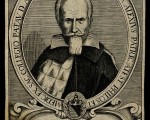
On 17th March 1565, Alexander Ales (also known as Alesius and Aless), theologian and reformer, died in Edinburgh, Scotland.*
Alexander Ales was born Alexander Allane or Alan at Edinburgh on 23 April 1500. From the age of twelve he was educated at the University of St Andrews, at St Leonard’s College, graduating BA after three years there. Ales became friends with theologian Philip Melancthon in 1532 when Ales began studying at Wittenberg University, and he began to be concerned with making the Bible available in the vernacular. He published an open letter to James V of Scotland in 1533, Alexandri Alesii epistola contra decretum quoddam episcoporum in Scotia, appealing for him to annul recent legislation making it illegal to own or distribute the New Testament in the vernacular. When the Catholic Johannes Cochlaeus, countered this with a letter to James accusing Ales of translating the New testament and sending it to Scotland, and claiming that it would cause unrest, Ales answered with Alexandri Alesii Scotti responsio ad Cochlei calumnias. In this letter, Ales emphasised how Continental reformers were simply trying to lead people back to the Bible and the teaching of the Early Church.
[Read More...]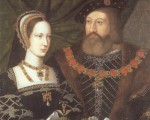
In today’s Claire Chats I talk about the secret marriage of Mary Tudor, dowager Queen of France, and Charles Brandon, Duke of Suffolk, in 1515.
[Read More...]
Alessandro Farnese was born on 29 February 1468 at Canino, Latium, which was in the Papal States. Educated at the University of Pisa and Lorenzo de Medici’s court, he was prepared to take on the career of apostolic notary. Changing course, Alessandro joined the Roma Curia in 1491 at the age of approximately 23 and was quickly promoted by the new pope Alexander VI to a cardinal-deacon position at Santi Cosma e Damiano two years later. Alessandro had the early makings of a fine career with the church. His family already boasted of Pope Boniface VIII.
[Read More...]